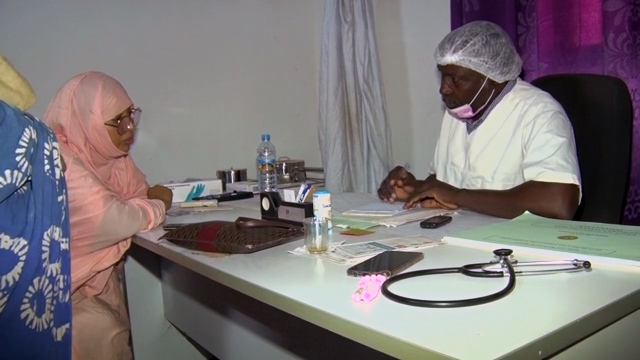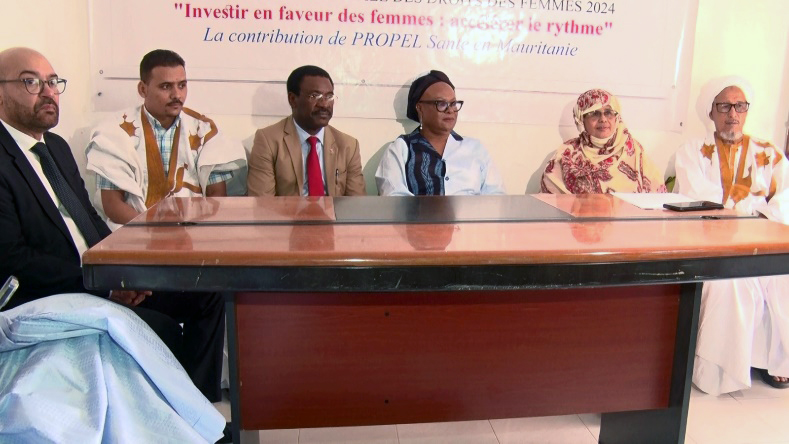Many women in Mauritania, particularly in the most remote and peri-urban areas, do not have access to reproductive health and family planning information and services. Also in these areas, religion and tradition can be a barrier to the use of modern birth spacing methods. Under this setting, PROPEL Health is supporting an enabling environment for birth spacing through the commitment of religious and community leaders through a campaign entitled “Investing in Women: Accelerating the Pace” in commemoration of International Women’s Day on March 8.
To launch this campaign, the project held an event to reach women in Teyarett, a peri-urban area of Nouakchott, where women lack access to these services and information. In coordination with the Ministry of Health, project partner the Association for Health and Community Development (ASDC) organized this advocacy day led by three influential religious leaders, who spoke on birth spacing and the rights of young married women to access reproductive health services in accordance with the country’s reproductive health law. Religious leaders explained that the reproductive health rights of women and birth spacing are allowed within the Islamic religion.

Woman being counseled on family planning.
Imam Hademine Saleck specified that “religion recommends that each person take care of their health. To this end, young married women must turn to health facilities and specialists to benefit from the full range of reproductive health products and services for better health. We religious leaders support this because Islam is not opposed to the spacing of births within couples.”
As part of the activity, ASDC offered onsite family planning services via a mobile clinic, which was accessed by 20 of the nearly 100 event participants. The activity builds on USAID’s efforts to engage faith leaders in support of the country’s family planning goals, outlined in Mauritania’s national family planning costed implementation plan. USAID’s Lisa Washington Sow and Daouda Diallo participated in the International Women’s Day event, along with the advisor to the director of the Ministry of Social Affairs, Childhood and Family in Nouakchott North, a representative of the Regional Health Directorate, and the mayor of Teyarett.
As next steps, the project is supporting efforts to repeat the activity in several other locations to share information about family planning services and increase the number of religious leaders who champion rights-based family planning.
Read more about PROPEL Health’s work in West Africa.
